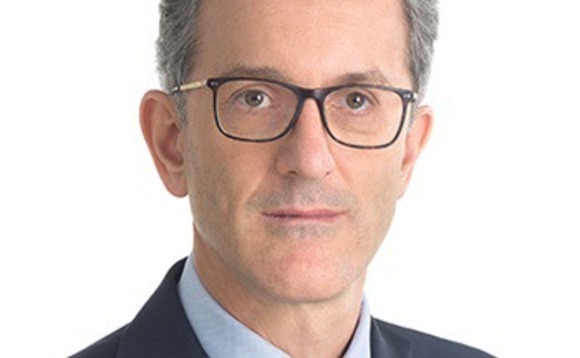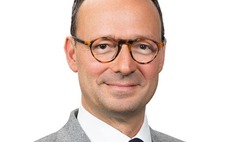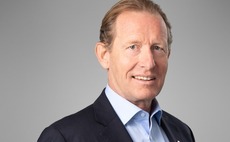
Q&A: Affirma Capital's Ivo Philipps

Affirma Capital came into being 18 months ago as Standard Chartered’s private equity team spun out with most of the remaining balance sheet assets. COO Ivo Philipps explains the middle and back office transition
Q: How do the COO functions and resources at Affirma differ from those at Standard Chartered?
A: We were part of Standard Chartered Bank and it had a particular COO model coordinating the middle office functions of human resources, finance, legal, compliance, and so on. We didn't have a CFO because the bank provided fully-fledged functions and the different business units interfaced with the bank. As we came out of the bank, we mirrored these functions, but in a much smaller way. We have a head of legal and compliance, a head of finance, a transactions team, a tax person, and then I do HR myself. We've also outsourced – technology to a technology provider, a lot of the finance functions to third-party administrators and accounting firms, and some of the legal functions to law firms.
Q: And it wasn't an ordinary spinout…
A: As we came out of the bank, we had five pan-regional funds with 10-12 investors, three funds in Korea, and the remnant of assets we were managing on behalf of Standard Chartered Bank. Then there was a new fund, the Intermediate Capital Group fund, which took most of the assets from the bank. We had $3.5 billion in assets across nine different funds or groups of investors, plus some dry powder. We weren't a start-up; we came out fully functioning. So, for the COO role and the team that reports to me, on July 31, 2019 we were doing a lot of things inside a bank. On August 1, 2019, we were doing the same things, independently of the bank but on behalf of a wide range of international investors. Everyone knew what they were doing, we just couldn't lean on the bank's finance, legal and tax. We had to do it ourselves or find outside advisors.
Q: How many people do you have in the middle and back office now?
A: We have a couple of people in Korea, and a lot of what they do is local regulatory compliance and reporting. Outside Korea we have nine or 10 people – three in finance, one-and-a-half in legal and compliance, three in transaction management, and a couple in valuations and reporting.
Q: What do you spend most of your time doing?
A: Quarterly reporting and valuations are a major undertaking. In the preceding few weeks, we are busy going through the valuation exercises based on the models we've been built up. A large part of my time is spent dealing with investors, whether it's hoc queries or reporting. And then when we raise new funds, a lot of time is spent talking to potential investors and to the team on the ground as we prepare PPMs [private placement memorandums] and due diligence questionnaires.
Q: What about environment, social and governance (ESG) work?
A: In 2016 through 2019, as we did the transaction that got us out of the bank, we found that investors are increasingly keen on governance controls and ESG. During this process, Abraaj blew up, and if you look what happened there, it was a lack of control. We spent a lot of time talking about our internal controls and governance. We were part of a major bank regulated in Singapore, the UK, the US and everywhere else, which meant we were gold-plated in terms of controls. As we came out, we adapted some of those controls, but by and large we kept hold of them. It is form and substance. The form is when you are doing due diligence and they ask to see the process flows and the controls. The substance is that is how it works to try and prevent issues. LPs are keen to know how we do the appropriate checks when we go into an investment, what we do if things go wrong while we are in an investment, and what checks and controls we have in place around ESG when exiting an investment.
Q: Do you have dedicated ESG personnel or resources?
A: We have an ESG committee: the CEO, myself, the head of legal and compliance, and two senior people, one from the Africa team and one from the Southeast Asia team. As we develop ESG policies and standards, they are embedded in our transaction checklist. We don't have a dedicated ESG person. We are a reasonably small firm, even though we are across six different offices. Over time, do I think we could have one? Yes. ESG takes up an increasing amount of time and it's increasingly important.
Q: As COO, do you sit on the investment committee?
A: There are seven founding partners, and we are all on the investment committee and each of us has a vote. Before it gets to the investment committee, a proposal goes through the compliance committee, where we look at ESG and things like control of the company and conduct a detailed review of all the due diligence reports. If there are issues around governance, KYC [know your customer], an individual in a company, or the financial accounts two years ago, the investment committee is informed.
Q: You've served as COO in other segments within financial services. How useful is this experience in private equity?
A: It's not about being a specialist in any area, it's about having the ability to look across all key areas and take risk-weighted judgments on what you are seeing. It's also an ability to be independent. No matter how good the investment proposition, if there is a significant regulatory or compliance risk, or there are concerns about the due diligence, there must be someone reasonably independent saying I don't like this. Having a person who can create a balanced discussion at the investment committee is valuable. It doesn't mean we don't have arguments, but at least we have the discussion. Being a founding partner with the same financial and reputational risk as everyone else helps as well.
Latest News
Asian GPs slow implementation of ESG policies - survey
Asia-based private equity firms are assigning more dedicated resources to environment, social, and governance (ESG) programmes, but policy changes have slowed in the past 12 months, in part due to concerns raised internally and by LPs, according to a...
Singapore fintech start-up LXA gets $10m seed round
New Enterprise Associates (NEA) has led a USD 10m seed round for Singapore’s LXA, a financial technology start-up launched by a former Asia senior executive at The Blackstone Group.
India's InCred announces $60m round, claims unicorn status
Indian non-bank lender InCred Financial Services said it has received INR 5bn (USD 60m) at a valuation of at least USD 1bn from unnamed investors including “a global private equity fund.”
Insight leads $50m round for Australia's Roller
Insight Partners has led a USD 50m round for Australia’s Roller, a venue management software provider specializing in family fun parks.







